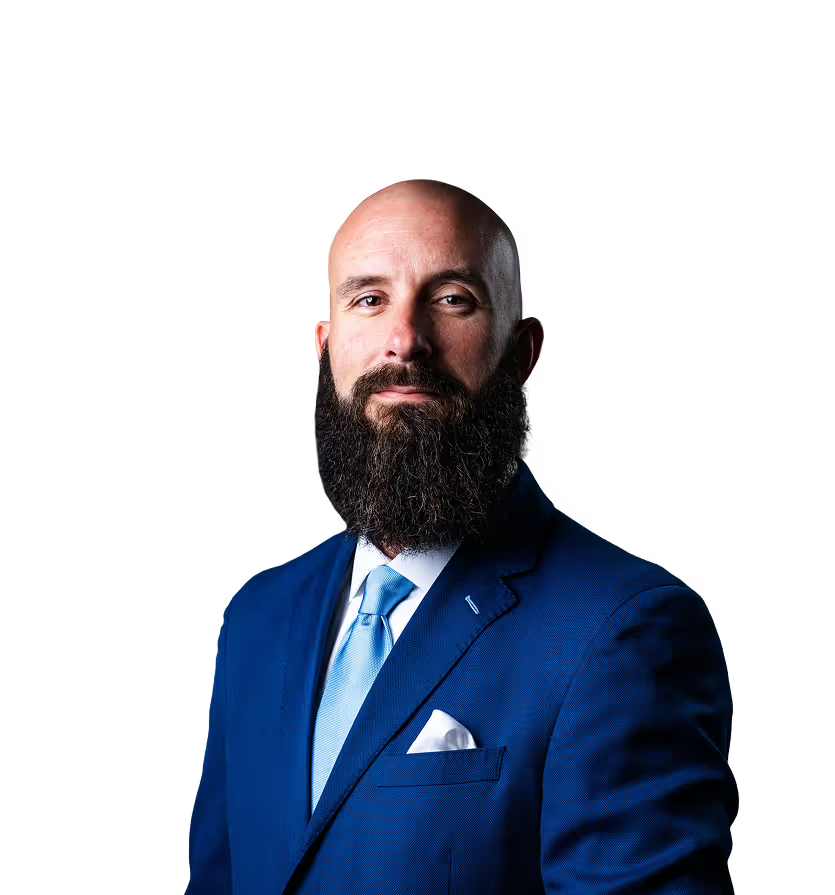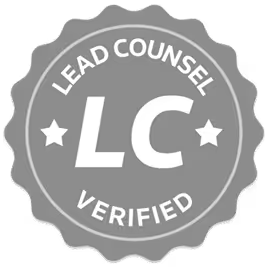Buford's Complex Multi-County Criminal Justice System
Unlike most Georgia cities, Buford spans two counties with dramatically different court systems and prosecution approaches. The majority of the city is located in Gwinnett County, while the northern sections fall under the jurisdiction of Hall County. This geographic split means identical charges can result in completely different outcomes depending on where exactly you're arrested. Understanding which prosecutor will handle your case and which judge will decide your fate requires intimate knowledge of both county systems that most attorneys simply don't possess.
The Buford Municipal Court, located at 2300 Buford Highway NE, handles city ordinance violations and traffic citations. However, serious criminal charges are transferred to either Gwinnett County's sprawling court complex in Lawrenceville or Hall County's system in Gainesville. Gwinnett County operates separate Superior, State, Magistrate, and Recorder's Courts with different judges, prosecutors, and procedural preferences. Hall County's smaller but equally complex system often provides more personalized attention but stricter sentencing patterns for certain offenses.
This jurisdictional complexity becomes particularly critical in cases near county lines, such as around Lake Lanier, where Hall County Sheriff's Marine Patrol and Georgia DNR officers make arrests that could be prosecuted in either system. Defense attorneys must understand not only the law but also the practical realities of how different counties approach plea negotiations, bond hearings, and alternative sentencing options.
Mall of Georgia Retail Crime Prosecution

As Georgia's largest shopping destination, the Mall of Georgia generates substantial retail theft enforcement with Gwinnett County Police conducting regular operations targeting organized retail crime. The May 2025 coordinated enforcement effort resulted in 19 arrests and the recovery of over $5,300 in stolen merchandise, involving multiple precincts and the Georgia Retailers Organized Crime Alliance.
Loss Prevention Escalation Tactics
Major retailers employ sophisticated loss prevention systems, including facial recognition, RFID tracking, and plainclothes security officers who often violate suspects' rights through illegal detention, excessive force, or coerced confessions. Understanding retail security limitations becomes crucial when challenging evidence obtained through improper procedures.
Store security officers frequently exceed their authority by detaining suspected shoplifters for extended periods without probable cause, using intimidation tactics to secure admissions that can be suppressed if they were obtained improperly. Many cases that appear straightforward involve constitutional violations that experienced criminal defense attorneys can identify and challenge.
Organized Retail Crime Enhancement
Georgia's organized retail crime statutes permit prosecutors to enhance simple theft charges to felonies when they allege evidence of coordination or intent to resell stolen goods. Even first-time offenders can face felony charges for stealing merchandise worth over $1,500 or for using devices such as foil-lined bags, which suggest an organized activity.
The Georgia Retailers Organized Crime Alliance maintains databases of suspected shoplifters that can result in enhanced charges based on previous incidents at different stores, even without convictions. Challenging the reliability and admissibility of this database evidence requires understanding both criminal law and retail industry practices.
Lake Lanier Boating Under the Influence Defense

Lake Lanier's status as Georgia's most popular recreational lake presents unique legal challenges, requiring specialized enforcement by the Hall County Sheriff's Marine Patrol, Georgia DNR Rangers, and U.S. Army Corps of Engineers police. Memorial Day 2024 alone generated 29 BUI citations, reflecting aggressive seasonal enforcement that treats boating violations more seriously than standard DUI cases.
Enhanced BUI Penalties and Procedures
Georgia's BUI laws carry identical penalties to DUI but involve more complex evidence collection and unique defenses. Unlike roadside DUI stops, boat operators can legally consume alcohol while operating watercraft, making prosecution more difficult but requiring attorneys who understand maritime law nuances.
Field sobriety tests on boats involve additional challenges due to wave motion, sun exposure, and the natural unsteadiness associated with watercraft. Officers often fail to account for these factors when administering tests, creating opportunities for suppression motions that require specialized knowledge of marine enforcement procedures.
Multi-Agency Enforcement Complications
Lake Lanier enforcement involves multiple agencies with different training standards, procedures, and reporting requirements. Hall County Sheriff's deputies, Georgia DNR Rangers, and federal officers may all be involved in a single arrest, creating jurisdiction and chain of custody issues that experienced attorneys can exploit.
The lake's position spanning multiple counties means BUI arrests can be processed through different court systems depending on the exact location of the incident, requiring defense strategies that account for varying prosecution approaches and judicial attitudes toward marine violations.
The High Cost of Convictions in Buford's Professional Community

Employment Consequences for White-Collar Professionals
Criminal convictions appear on background checks performed by Georgia's top employers, many of whom maintain zero-tolerance policies for criminal history. Healthcare, education, finance, and technology companies often have automatic disqualification policies that eliminate career opportunities, regardless of the circumstances surrounding the conviction or rehabilitation efforts.
Corporate morals clauses frequently require employees to report arrests immediately, creating job insecurity even before cases are resolved. Executive positions and government contractor roles require security clearances that can be jeopardized by criminal charges, potentially affecting both current employment and future opportunities.
Professional License Board Reporting
Licensed professionals are required to report criminal charges to state regulatory boards within specific timeframes, typically before the resolution of criminal cases. Even charges that are eventually dismissed can trigger license suspension or revocation proceedings under regulatory standards that differ from criminal burden of proof requirements.
Medical professionals, attorneys, real estate agents, financial advisors, and other licensed workers face career-ending consequences from criminal convictions that extend far beyond court-imposed penalties. Understanding regulatory board procedures and coordinating defense strategies becomes essential for protecting professional futures.
Housing and Financial Institution Impacts
Buford's luxury housing market requires stringent mortgage qualification standards that can be affected by having a criminal record. Banks and credit unions consider criminal history when making lending decisions, which can potentially impact refinancing opportunities or new home purchases in Buford's competitive real estate market.
Landlords routinely reject rental applications from individuals with criminal records, limiting housing options even for those who can afford Buford's premium rental market. These collateral consequences often have a longer-term impact on defendants' lives that exceeds direct criminal penalties.
Constitutional Rights and Professional Dignity Protection

Fourth Amendment Search and Seizure Issues
Law enforcement officers must follow constitutional procedures when conducting searches and seizures, but violations aren't always obvious to defendants who don't understand their rights. Police misconduct in evidence collection can result in suppression motions that often lead to case dismissals, but require attorneys who recognize constitutional violations and know how to effectively challenge them.
Vehicle searches during traffic stops, consent searches of homes or businesses, and electronic device seizures must meet specific constitutional standards that officers frequently violate. Understanding when searches exceed constitutional boundaries becomes crucial for protecting evidence that could establish innocence or create reasonable doubt.
Fifth Amendment Protection During Investigations
Everything defendants say to police can be used against them, even statements they believe are helpful or explanatory. The right to remain silent applies from the moment of detention, not just after formal arrest, and should be invoked immediately to prevent damaging admissions.
Corporate investigations, regulatory inquiries, and professional board proceedings create additional Fifth Amendment considerations, as statements made in one proceeding can be used in criminal prosecutions. Understanding when cooperation helps versus when silence protects requires sophisticated legal analysis.
Sixth Amendment Right to Effective Counsel
Defendants have the right to competent legal representation from the moment of arrest, but many attorneys lack the specialized knowledge required for complex cases involving multi-county jurisdictions, federal task force involvement, or professional license implications. Choosing attorneys with demonstrated expertise and advanced knowledge in relevant practice areas becomes crucial for protecting both legal rights and professional futures.
Georgia's First Offender Act and Record Restriction

Georgia's First Offender Act provides opportunities for eligible defendants to avoid permanent criminal convictions through successful probation completion, but eligibility requirements and strategic considerations make professional guidance essential. First Offender treatment isn't automatic and may not be appropriate for all defendants, particularly those facing professional license implications or multiple charges.
First Offender Eligibility and Strategic Considerations
First-offender eligibility depends on a person's criminal history, the severity of the charge, and the prosecutor's discretion, with different standards applied in Gwinnett versus Hall County courts. Accepting First Offender treatment waives certain appeal rights and may not be available for subsequent charges, making strategic analysis crucial before accepting plea agreements.
Professional license holders must consider whether First Offender treatment satisfies regulatory board requirements or whether fighting charges offers better long-term protection. Some licensing boards treat First Offender pleas as admissions of guilt despite the absence of formal convictions.
Record Restriction and Expungement Options
Georgia's record restriction laws allow qualified individuals to limit public access to criminal records, but the process involves complex procedural requirements and strategic timing considerations. Records must be restricted through separate proceedings after case resolution, requiring additional legal action that many defendants don't realize is necessary.
Professional background check companies often maintain separate databases that aren't automatically updated when records are restricted, requiring additional steps to ensure complete record protection. Understanding both legal requirements and practical implications becomes essential for achieving actual record protection.
Two Counties, One Defense Team That Knows Both
Buford cases can end up in Gwinnett or Hall County courts, but most average attorneys only practice in one of these counties, not both. With Blake's prosecutorial experience and Matt's judicial background across both jurisdictions, we master the complexity in a way that others can't. Call today!
























.avif)
